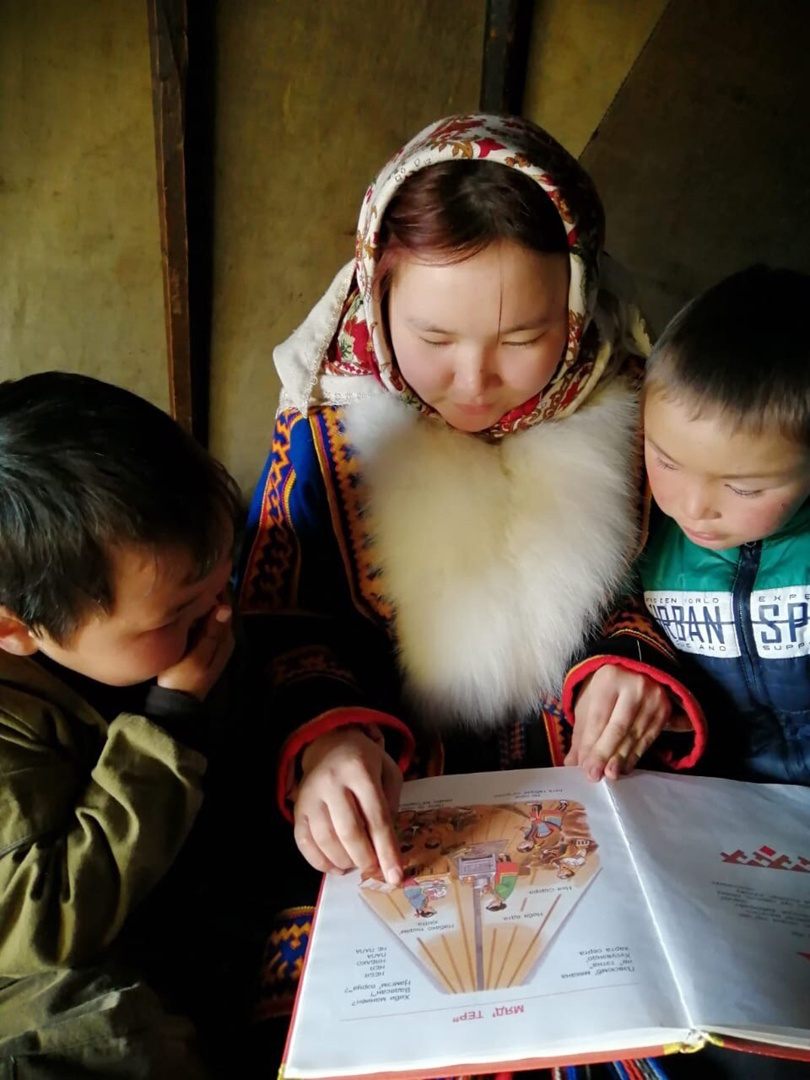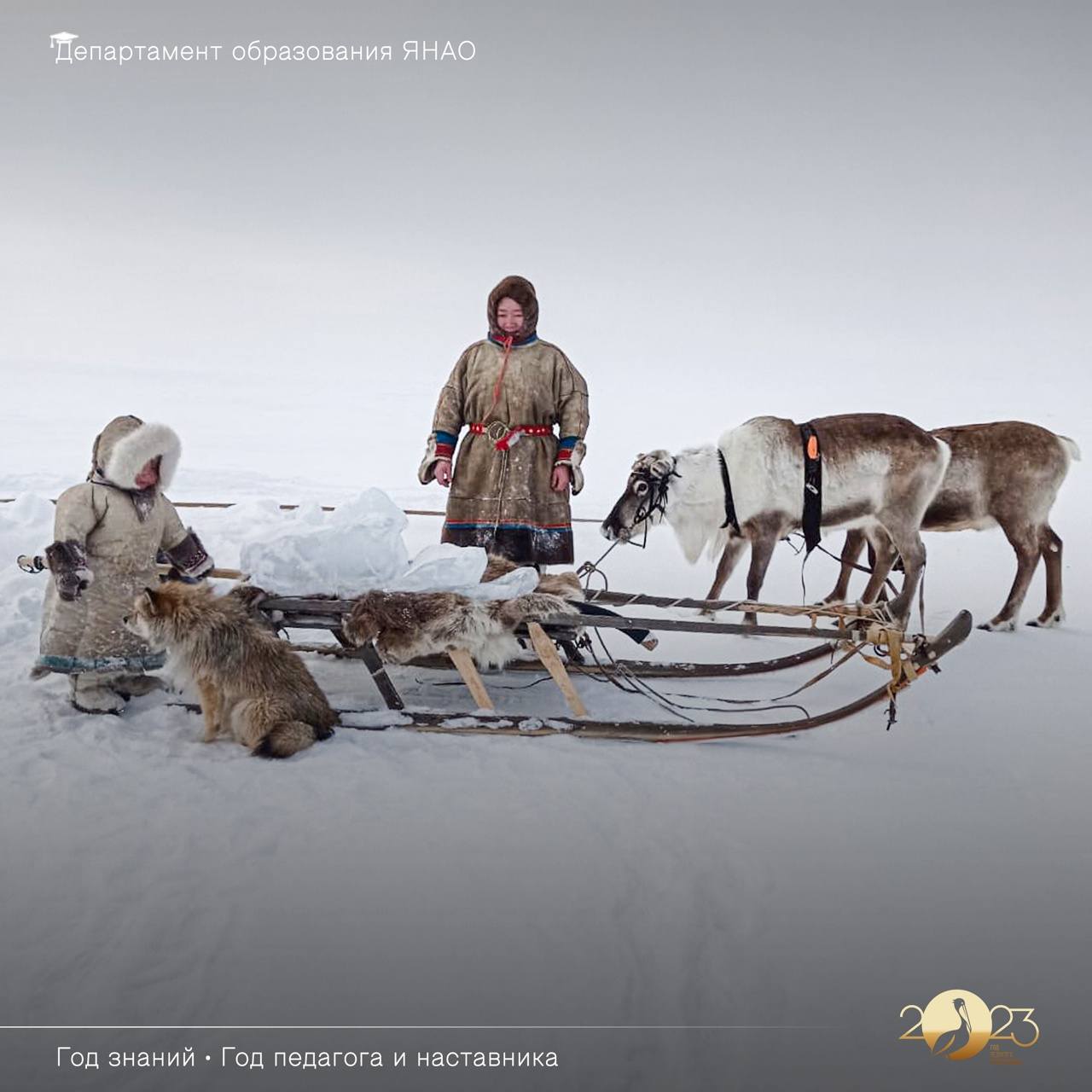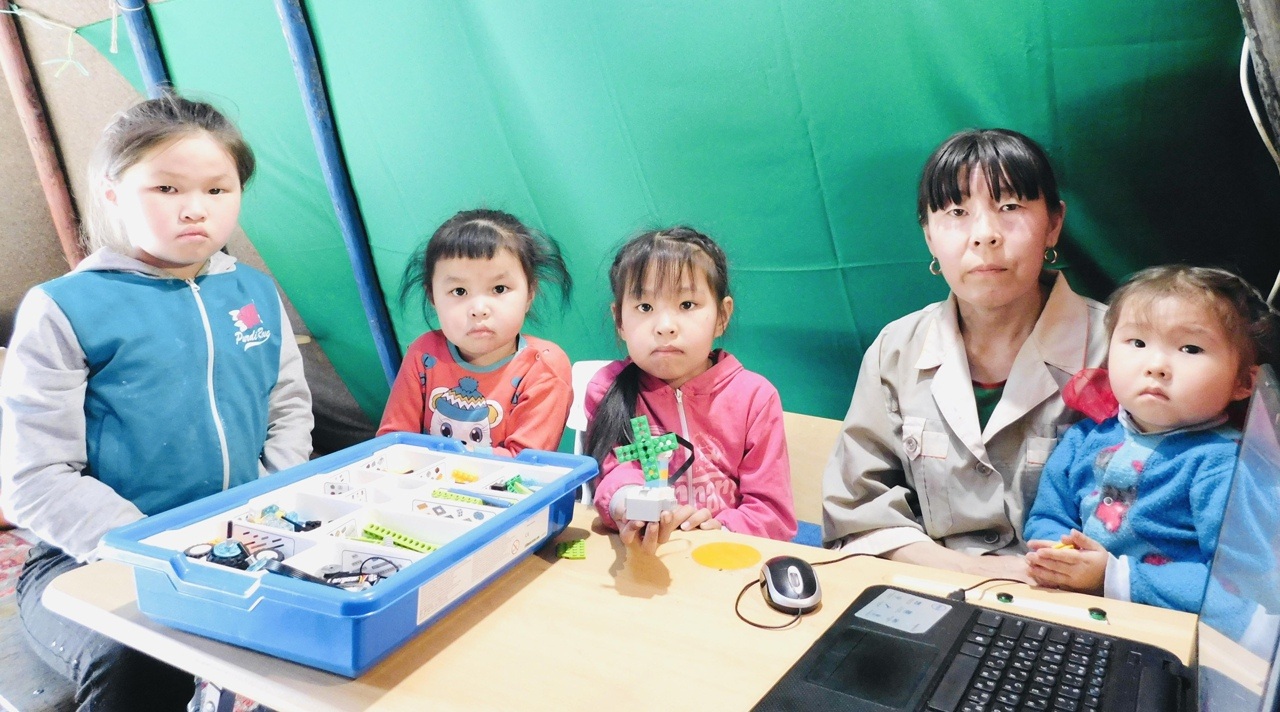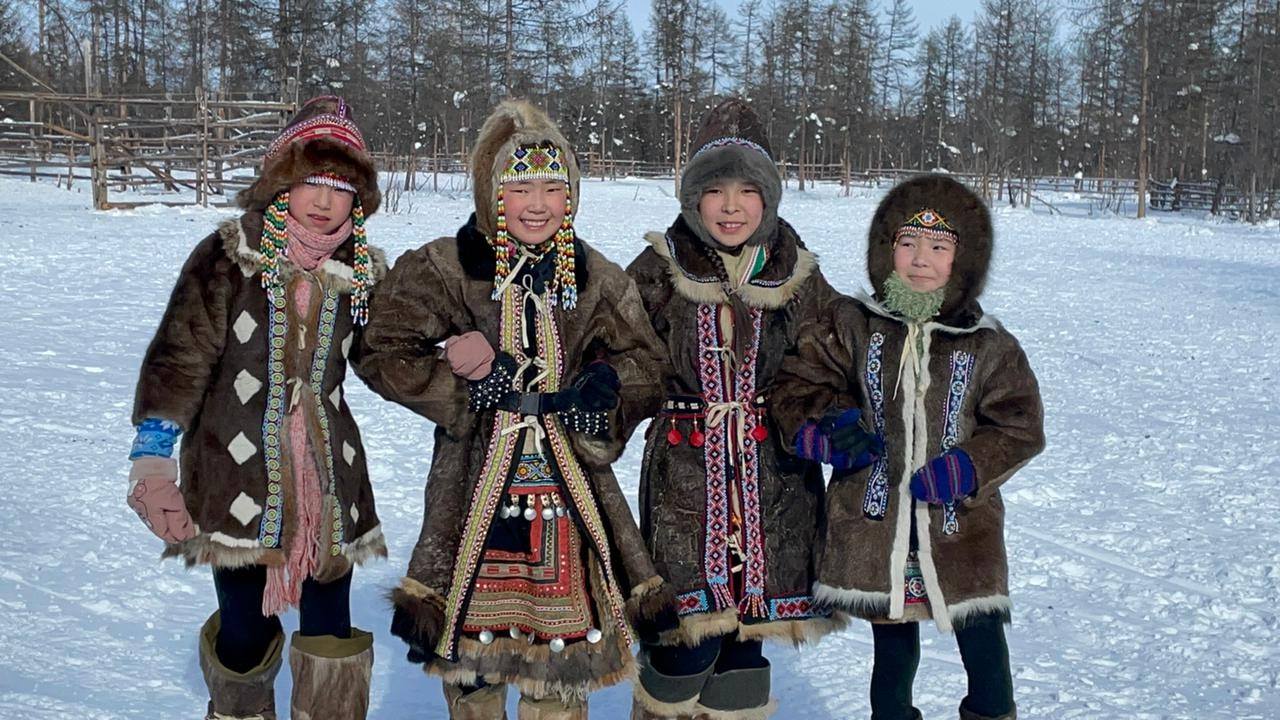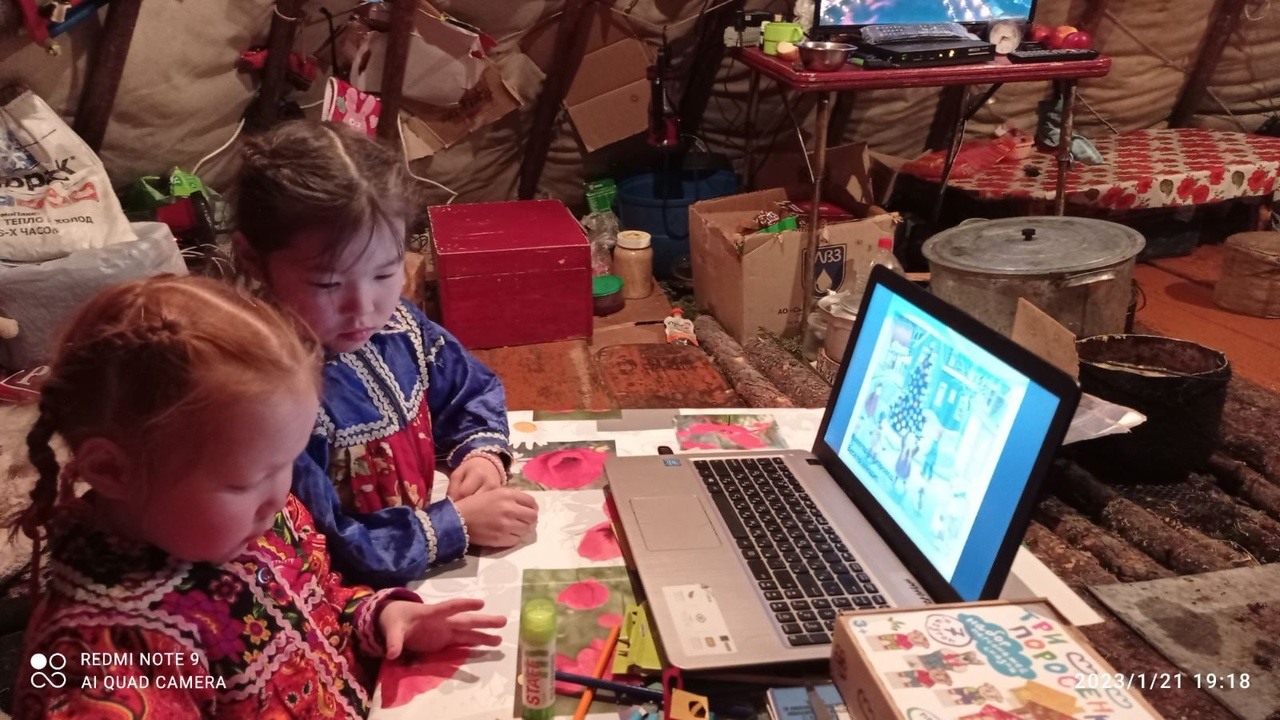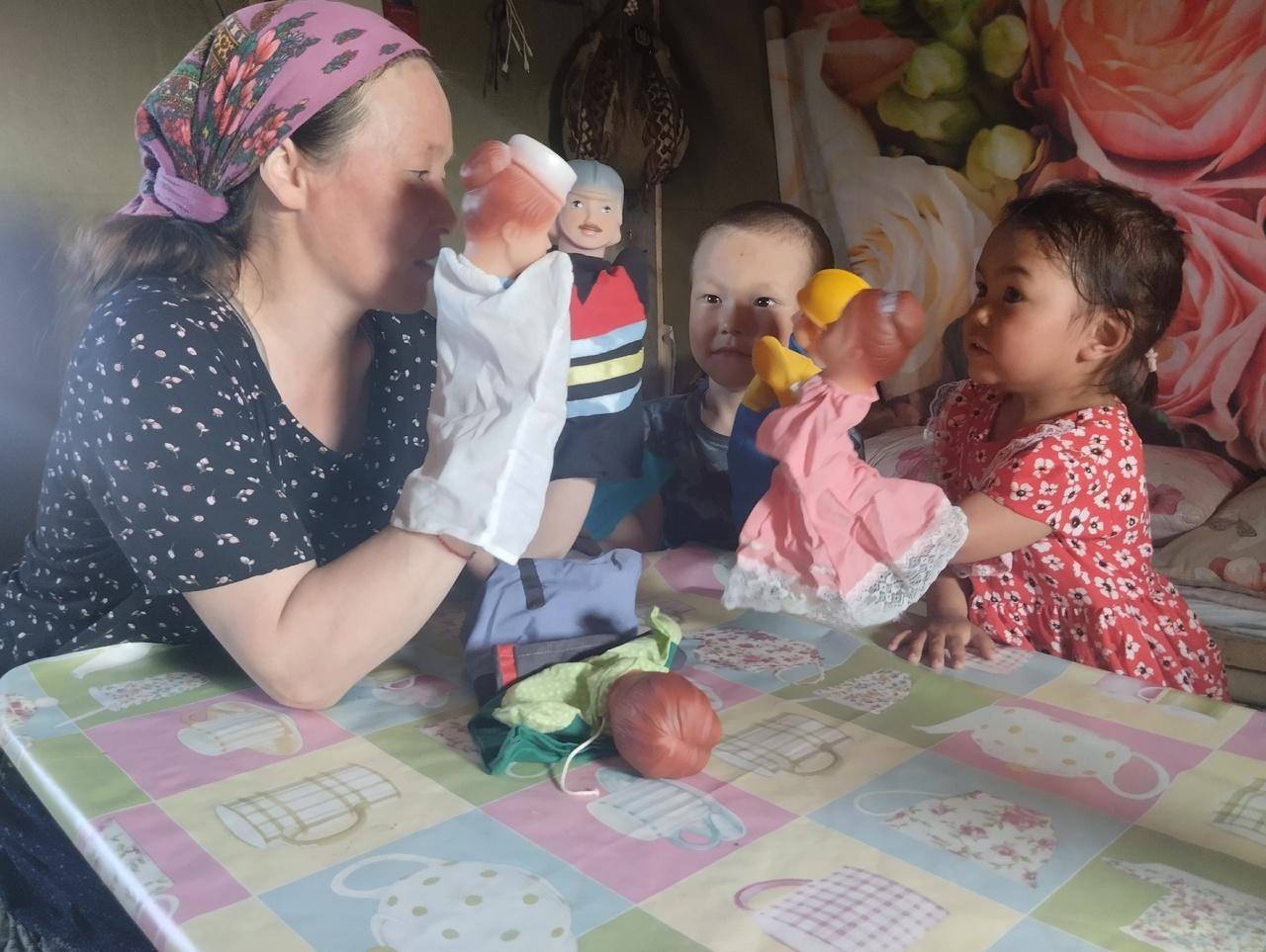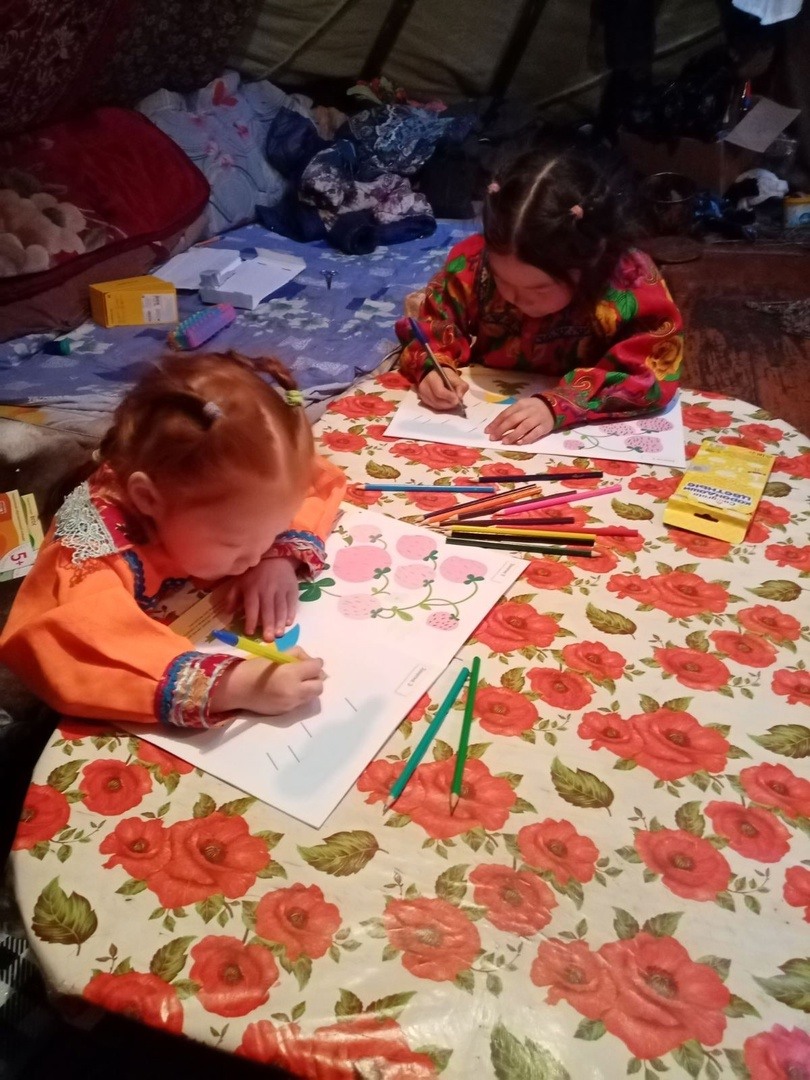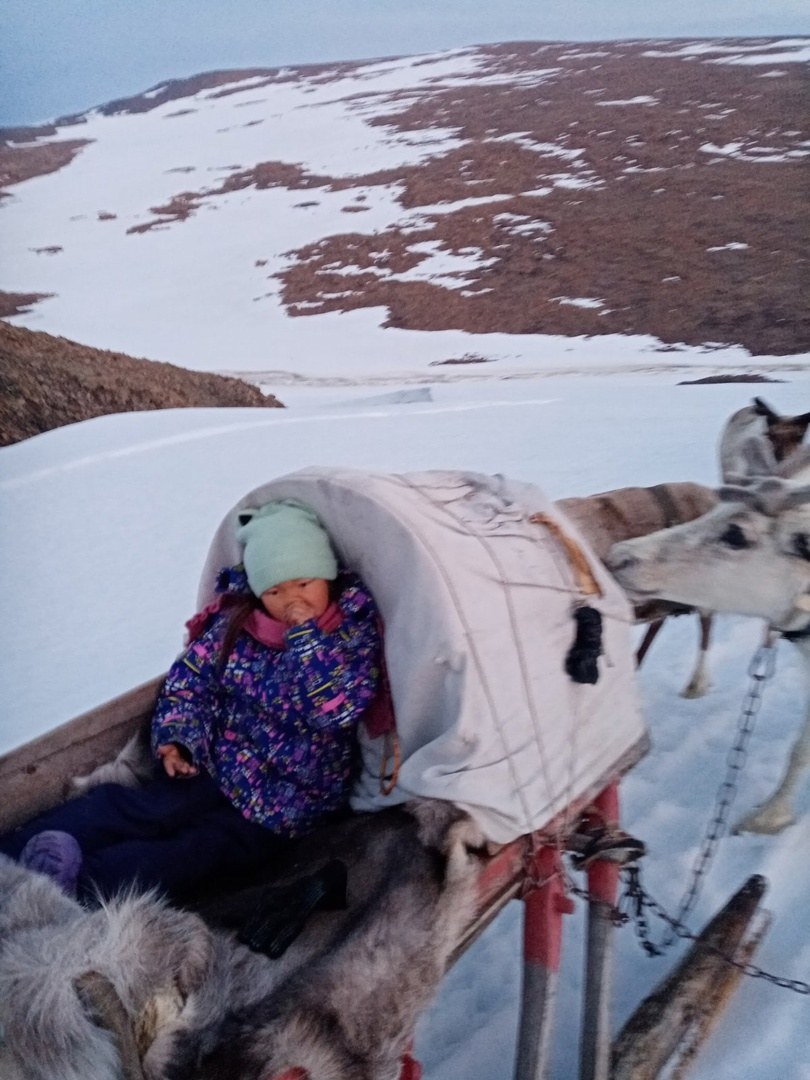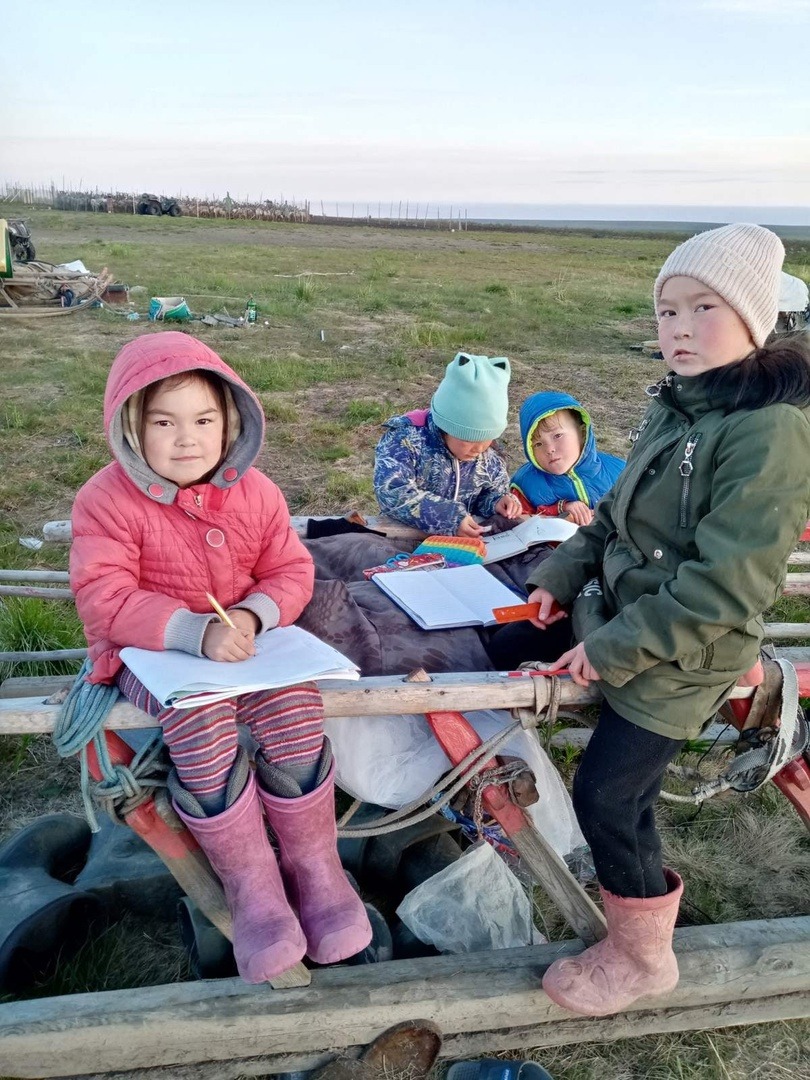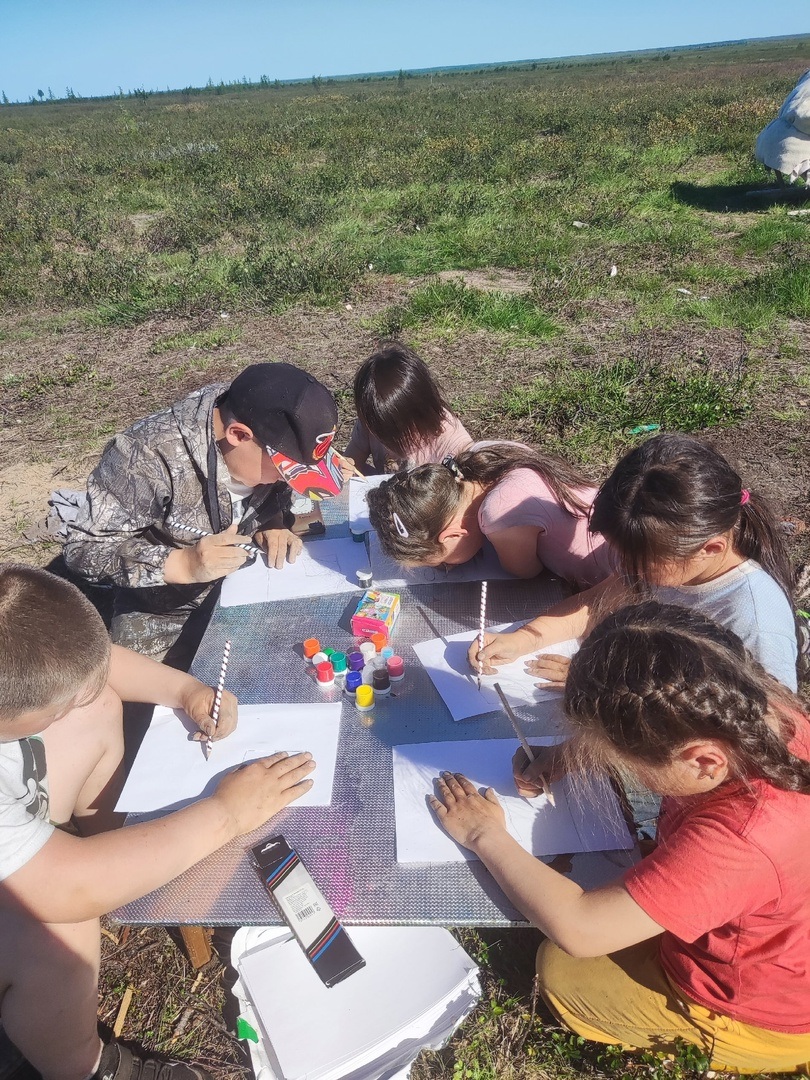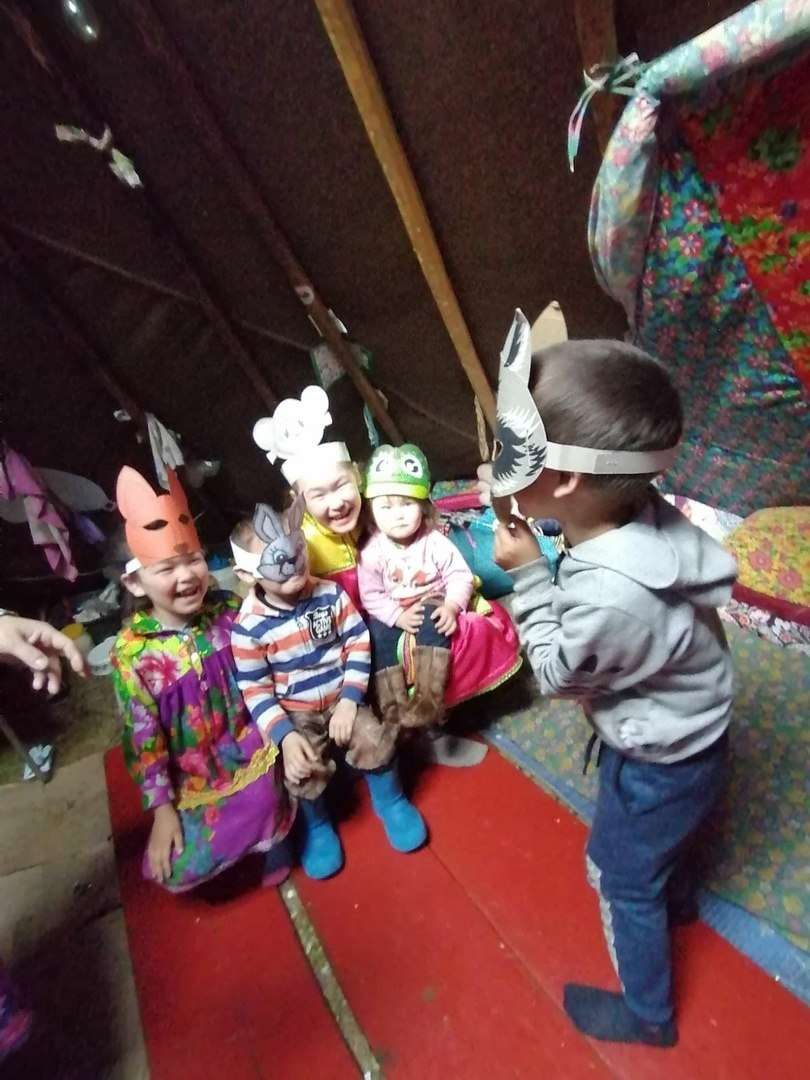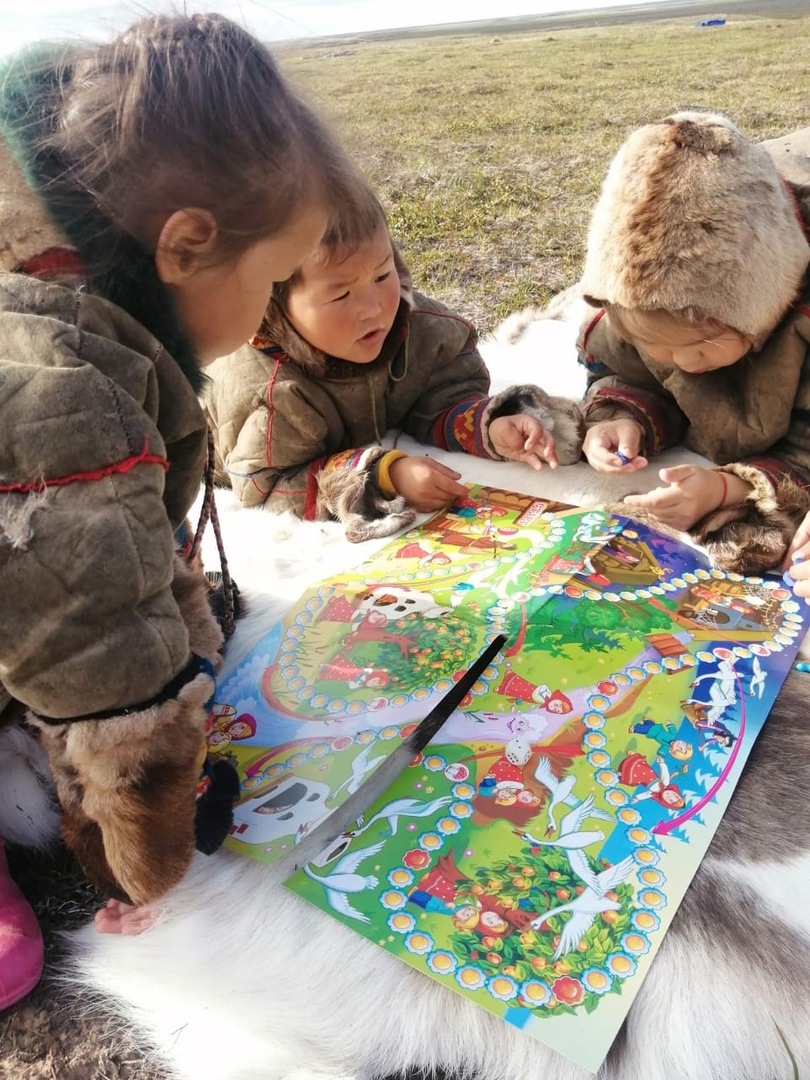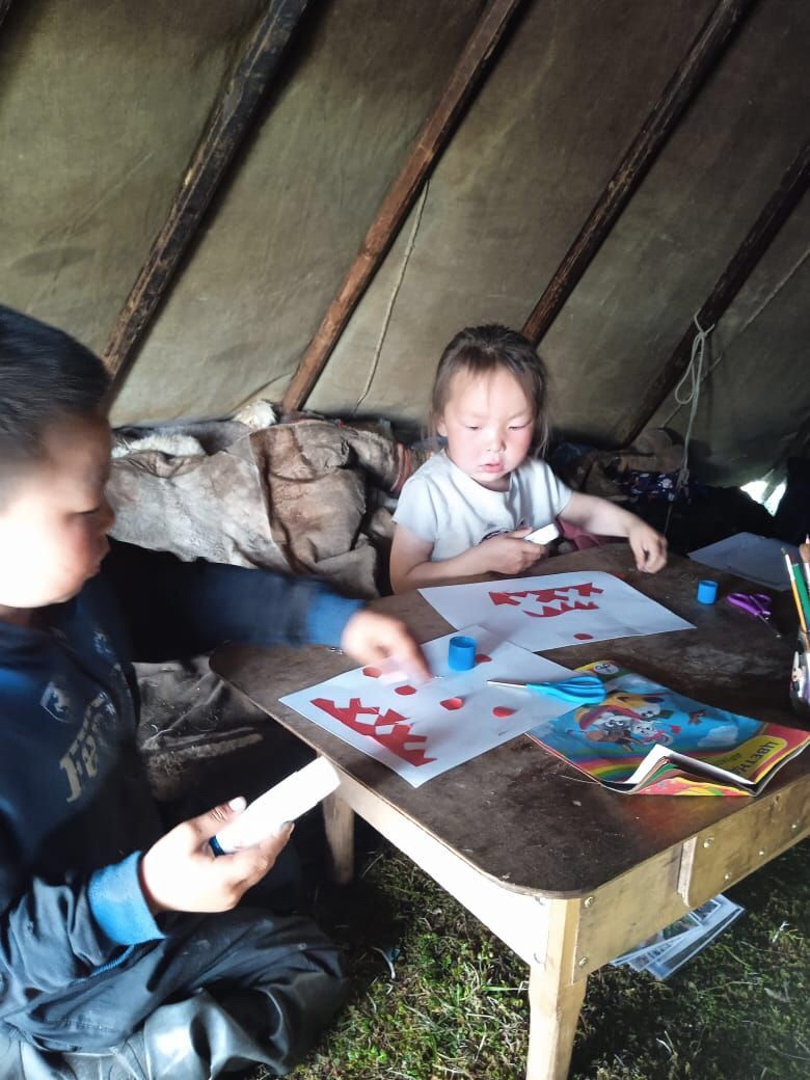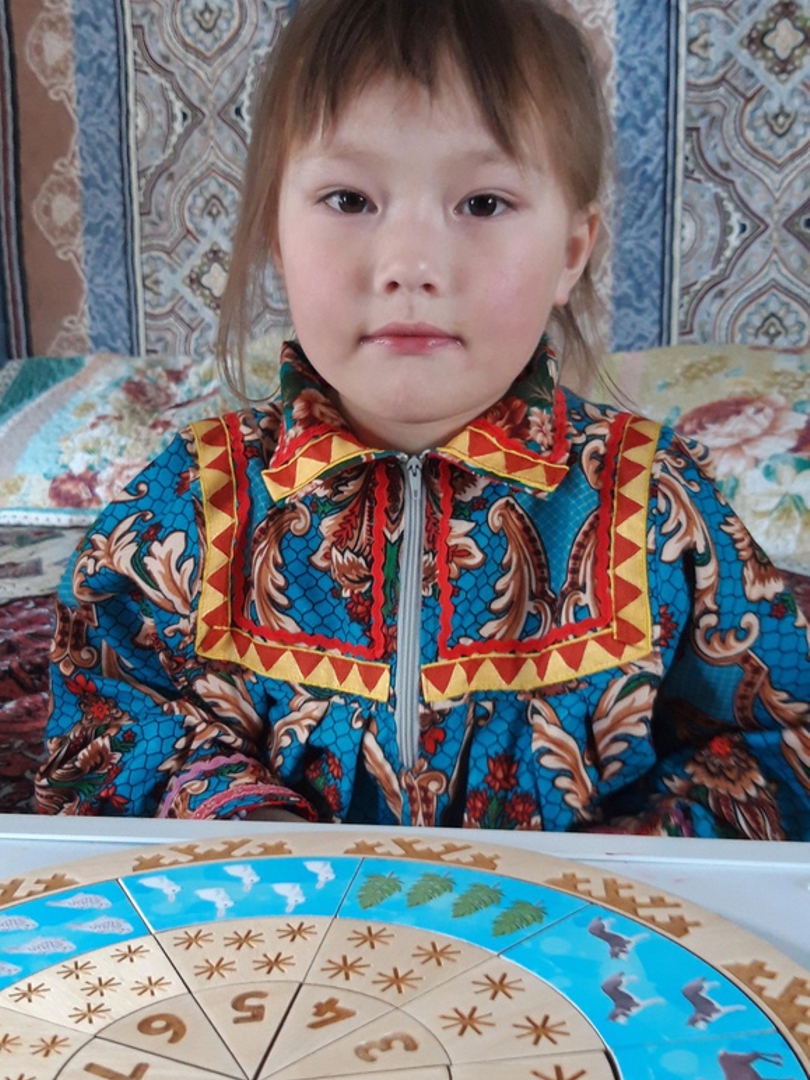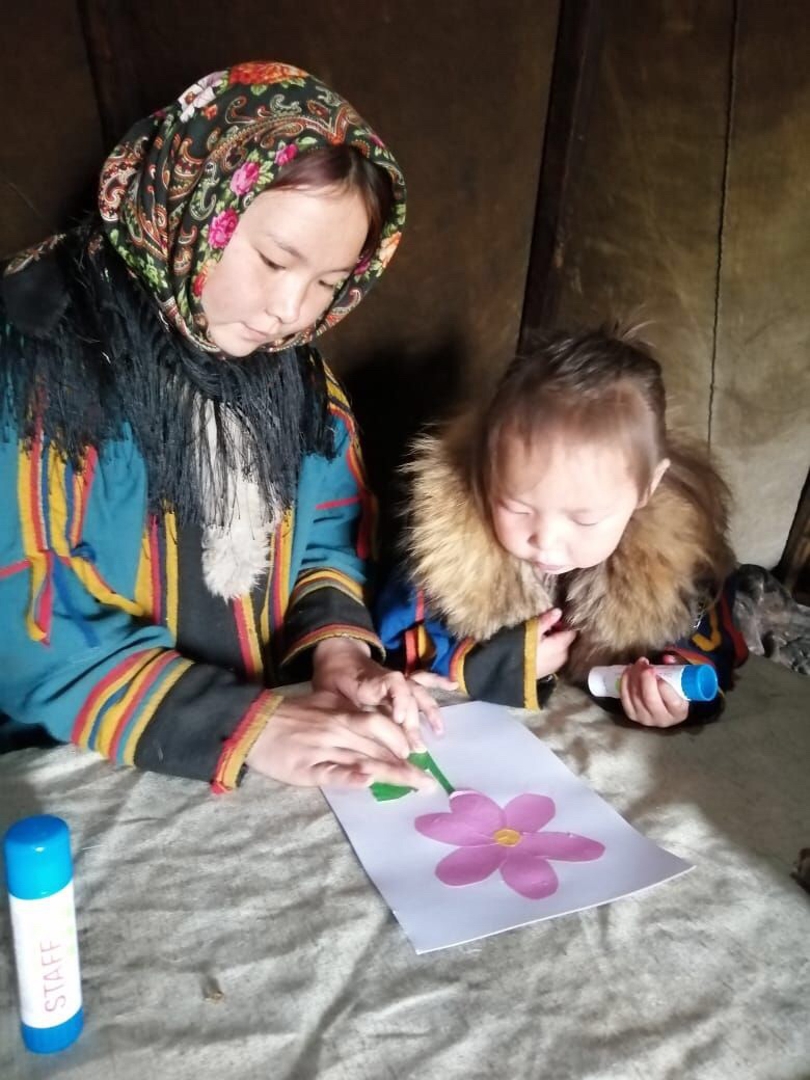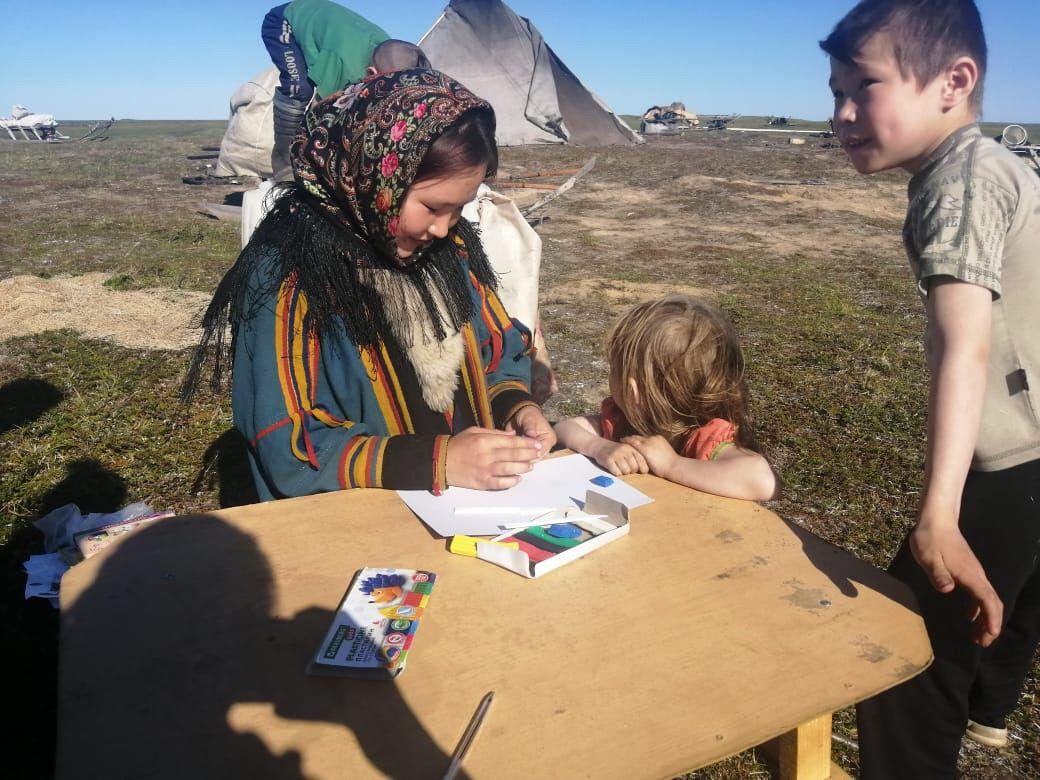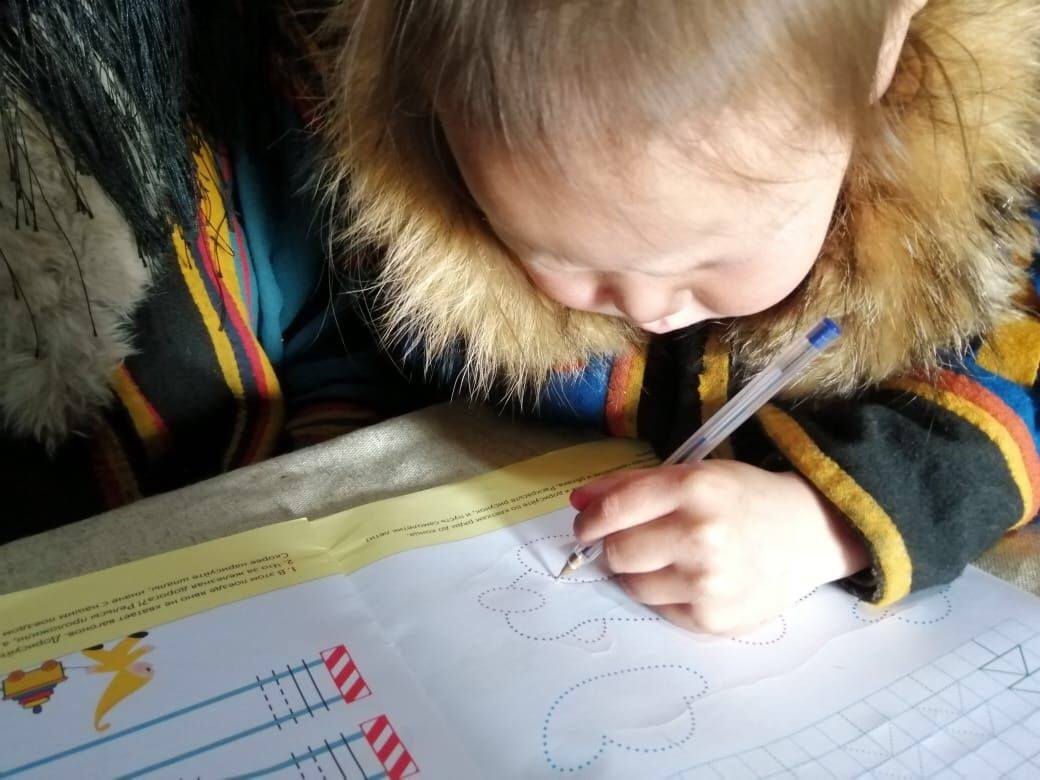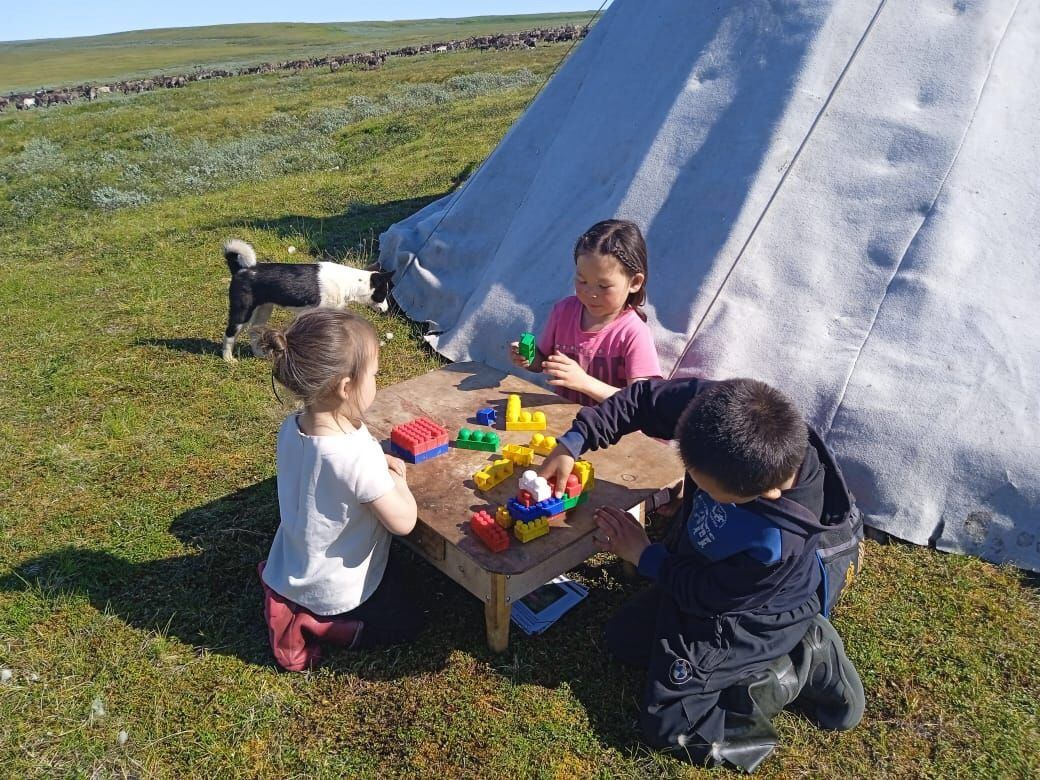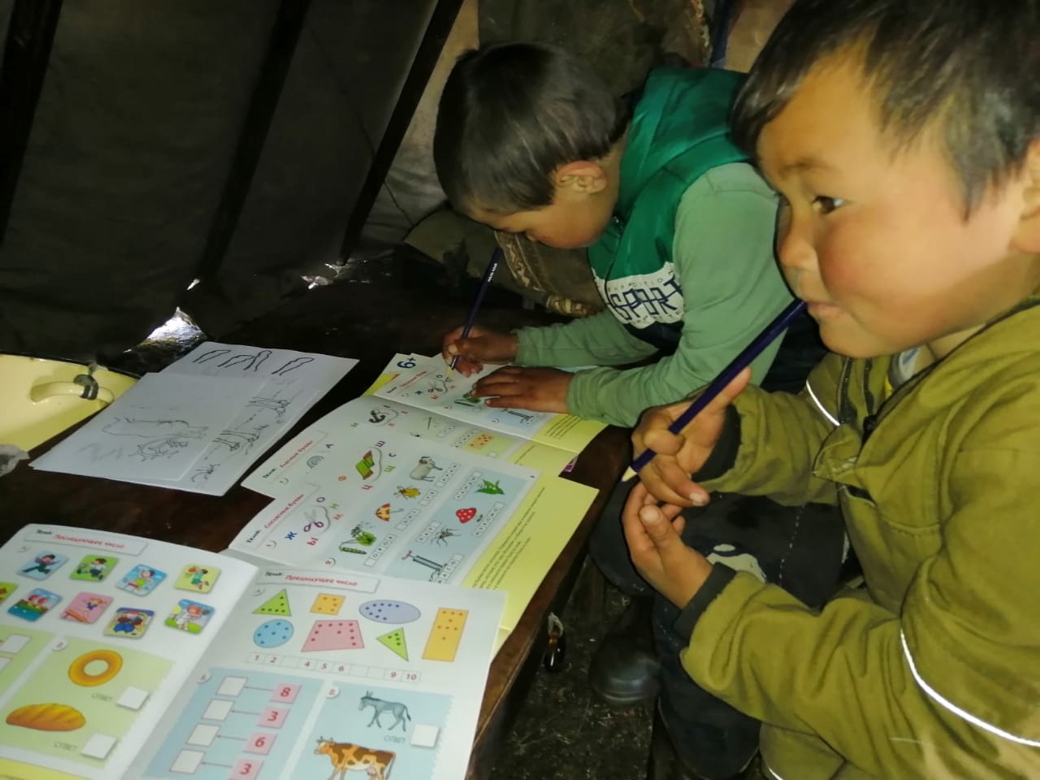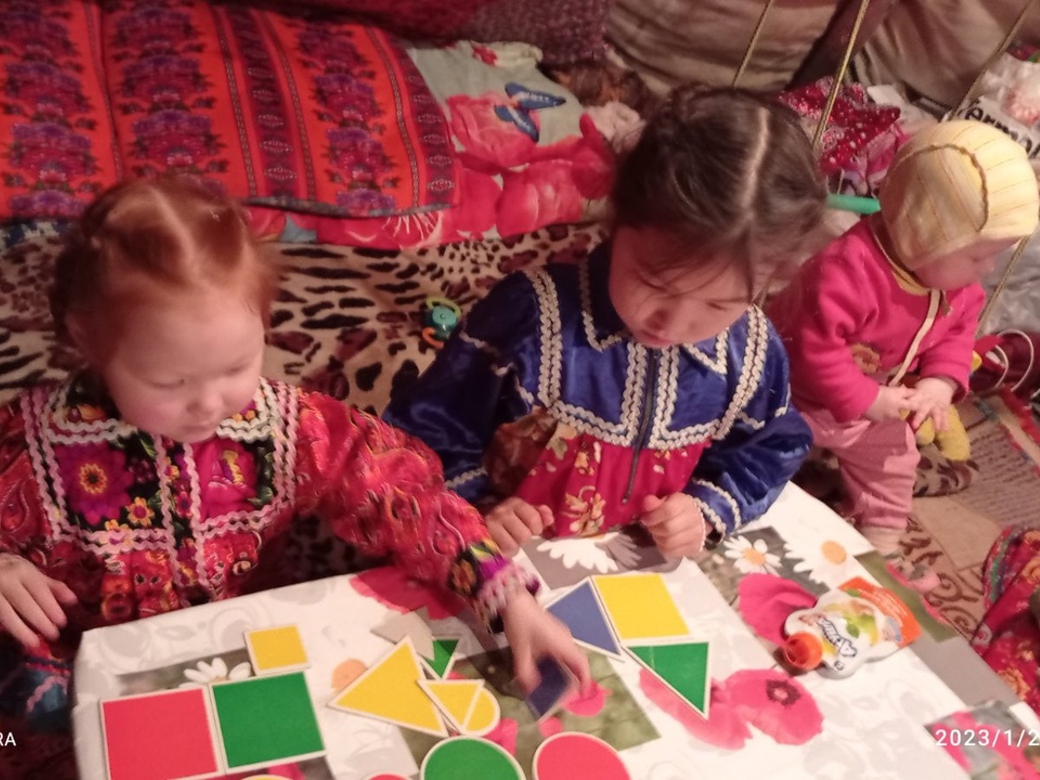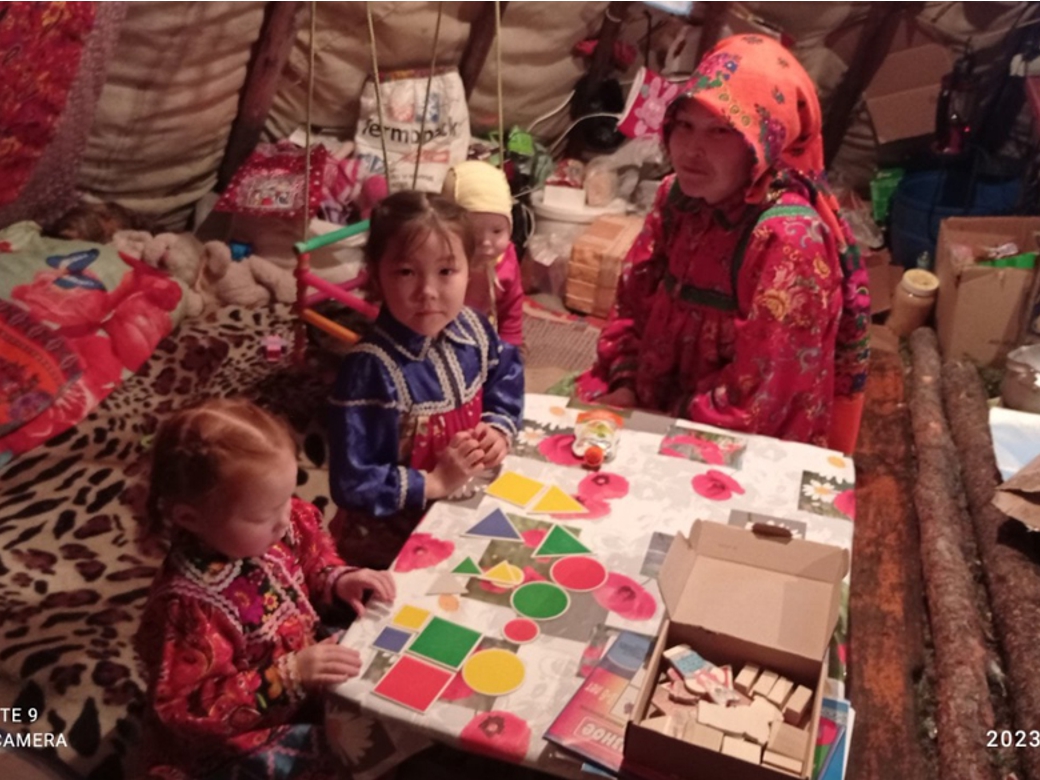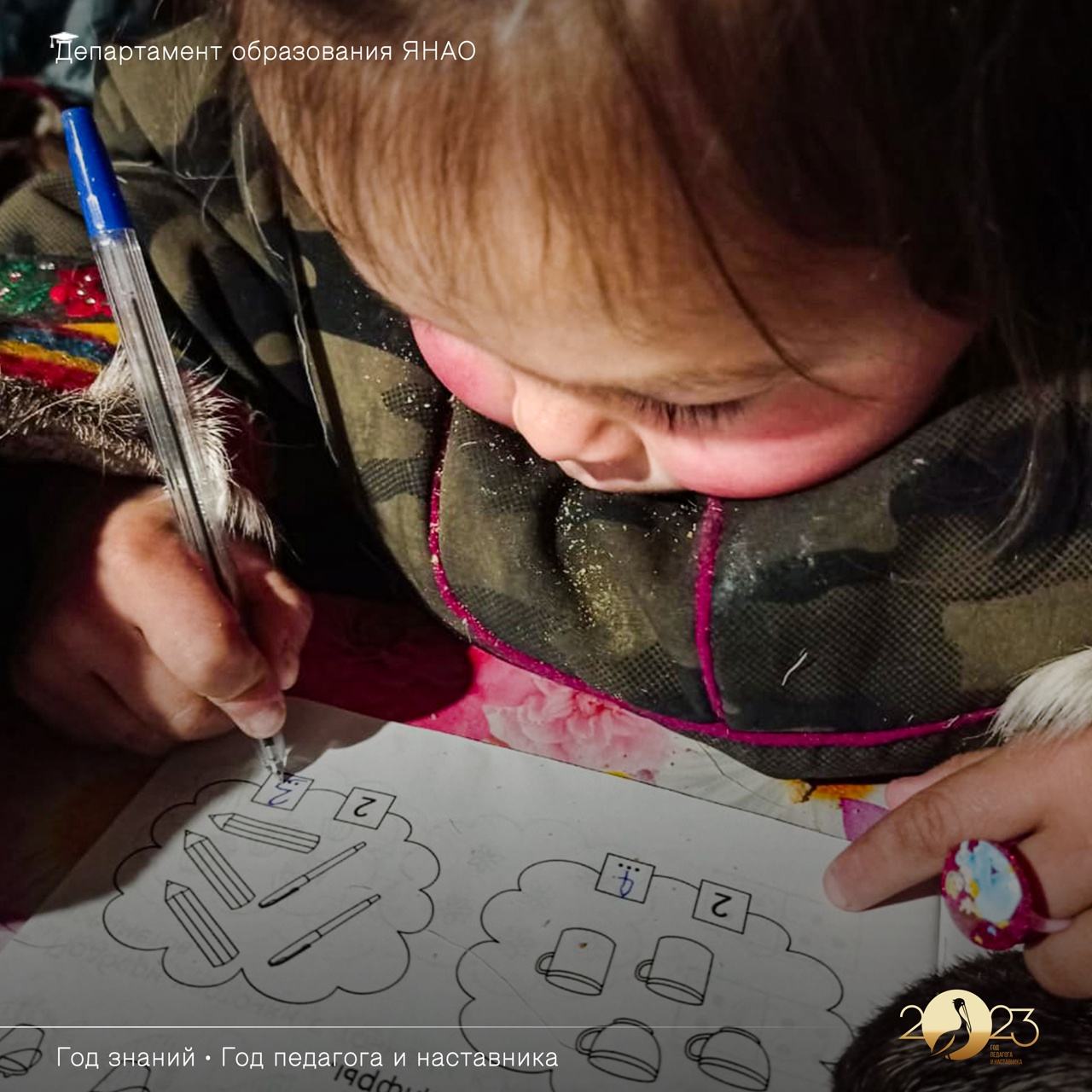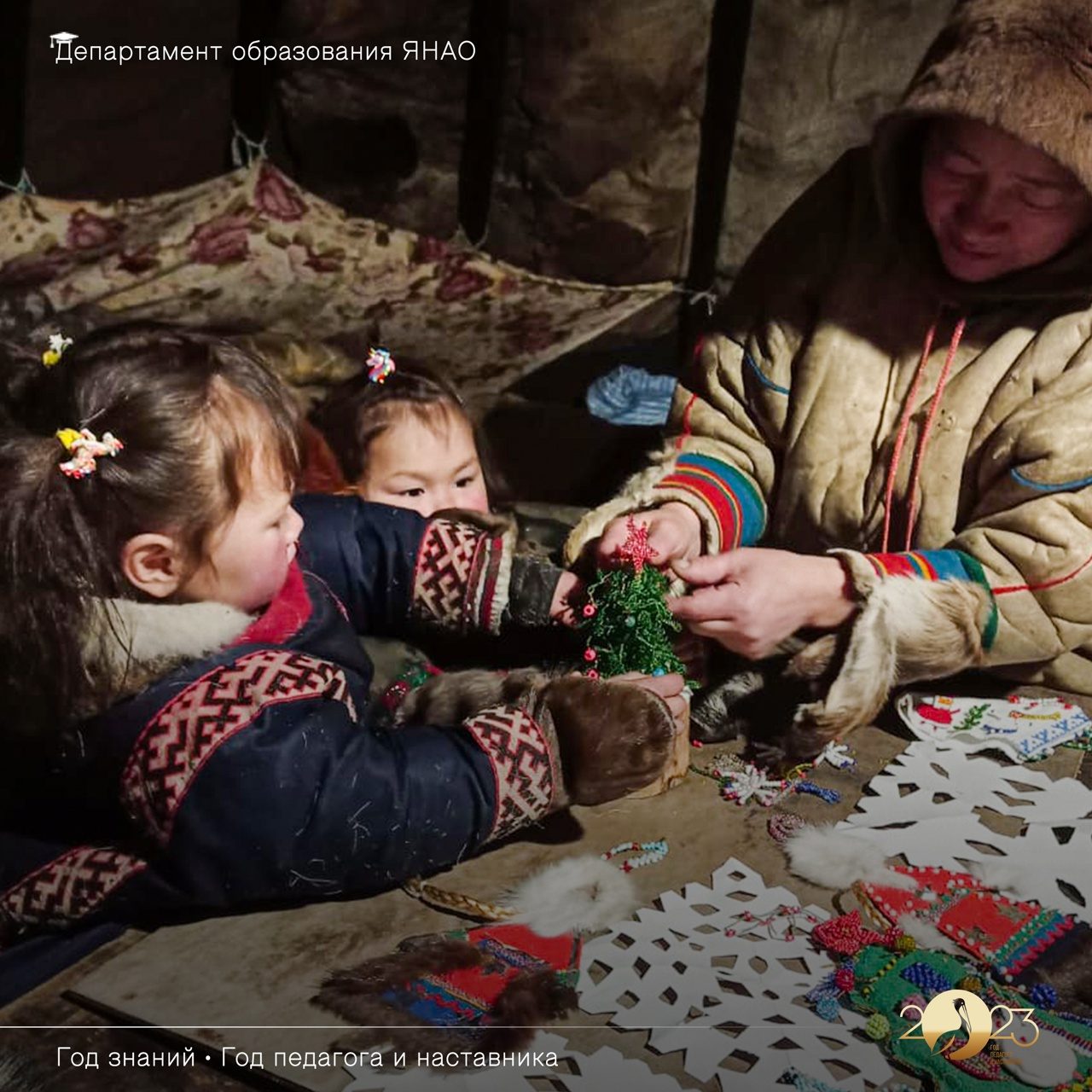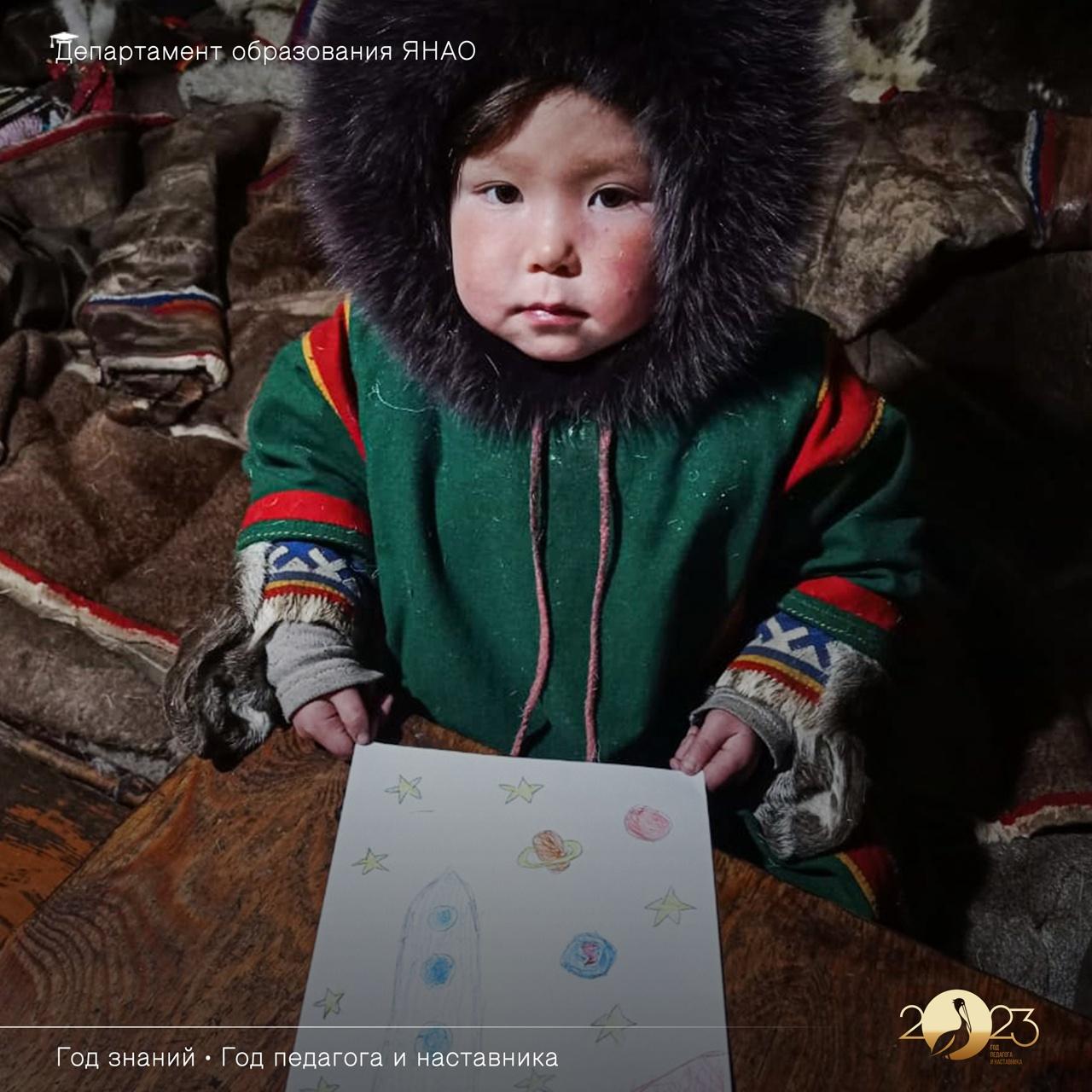More than 20,000 people in Russia lead a nomadic lifestyle today. These are reindeer herders who move behind their herds all seasons of the year, from pasture to pasture, across vast territories of the Arctic and Siberia. Nenets, Dolgans, Evenks, Evens, Chukchi roam with their families and young children. In total, there are 4,676 traditional indigenous families who independently raise 2,203 preschoolers and 4,366 school-age children.
How to solve education issues in conditions of constant movement? The Russian Constitution guarantees all children the right to education. In Soviet times, a system of nomadic schools was developed specifically for the education of indigenous children. Nomadic schools were opened in Russia in the 20-30s of the XX century. They were created in order to eliminate the illiteracy of nomadic peoples.
Then the government began to actively build boarding schools. Parents were given a free choice: to send their children there to study or not. ost of the parents did not choose to study. For this reason, nomadic schools were opened in the camps of reindeer herders, fishermen and hunters.
Since 1938, nomadic schools began to close, and children of nomadic parents were educated in boarding schools. This process has two opposite evaluations. On the one hand, indigenous peoples received their national elite, scientists, writers, artists, journalists, public figures who made the lives of these peoples better and preserved culture in narratives.
The national literature and written languages of the peoples of the North developed. In national settlements, representatives of indigenous peoples worked in local history museums, ethnocenters, and art houses. They taught their native languages in schools.
On the other hand, children broke away from their family at the age of 6, the link between generations was destroyed, the language of their ancestors, reindeer husbandry and hunting skills, customs and beliefs were forgotten. Reindeer husbandry and its associated culture could simply disappear.
In the 1990s, regional leaders began to talk about the fact that boarding schools contribute to the outflow of the indigenous population from the northern territories. At the end of the 20th century, nomadic schools began to reopen in the Republic of Sakha (Yakutia) and in the Amur region.
They were conceived as an alternative to the boarding school system. The developers of nomadic education aimed to provide an opportunity to receive education without separation from the family and traditions of the people. At the beginning of the XXI century, nomadic schools were opened in the Nenets Autonomous District, the Taimyr Dolgan-Nenets Municipal District and the Evenki Municipal District of the Krasnoyarsk Territory, as well as in the Khanty-Mansiysk, Chukotka and Yamalo-Nenets Autonomous Districts.
Currently, today there are 35 nomadic schools in Russia (the number varies from year to year) with a total coverage of about 600 pupils.
Special teachers work with children from nomadic families. Throughout the year, they travel with a team of reindeer herders, which usually consists of two or three families. On average, up to 12 children can study at such a school.
There are also small modular schools in the factories in the tundra. Nomads come there to replenish food supplies. In such schools, children study according to the program of kindergartens (from 2 to 7 years old) and lower grades (from 7 to 11 years old), and only then the child goes to boarding school to receive basic general education up to grade 9 or 11. Thus, the nomadic school allows children up to 10-11 years old to remain in a traditional lifestyle, in a linguistic environment, which contributes to the preservation of their native languages, the transfer of traditional knowledge, customs, and worldview.
At the same time, the Russian language, history, culture are being mastered, civil and ethnic identity is being formed.
Realizing the importance of nomadic schools, a number of subjects of the Russian Federation are introducing regional laws and projects related to nomadic schools. In 2008, the Law "On Nomadic Schools of the Republic of Sakha (Yakutia)" was published in Yakutia.
The law states: "This law is aimed at organizing free education for children in places of traditional residence and traditional economic activities of the indigenous peoples of the North without separating them from their parents, guaranteeing access to the achievements of world civilization, studying their own history, national culture, native language and traditional economic activities, education of national dignity, in order to create conditions for revitalization, preservation and protection of the native habitat, traditional lifestyles, economic activities and crafts of the indigenous peoples of the North".
A nomadic school is an independent educational organization or a branch of an educational organization in the places of traditional residence and traditional economic activity of the indigenous peoples of the North. It provides access to pre-school, basic general and additional education. The law identifies 9 types of nomadic schools: nomadic school, primary nomadic kindergarten school, community school, tutor school, taiga school, stationary nomadic school, Sunday school, network nomadic school, summer nomadic school, family nomadic school.
State support for nomadic schools is based on the following principles:
- recognition and preservation of the traditional nomadic lifestyle;
- provision of equal opportunities in the field of education;
- ensuring the protection of the legitimate rights and interests of the child;
- prevention of separation of children from their parents and other family members;
- preservation and development of national culture, native language, traditional way of life and traditional economic activity;
- accessibility of primary and secondary general education;
- the unity of the cultural and educational process;
- the state-public nature of the organization and management of nomadic schools;
- integration of nomadic schools into the system of continuing education;
- social support for nomadic families with children;
- state centralized provision and financing of nomadic schools, including the provision of fuel, material and technical resources, transport for the transportation of students and teachers.
To date, there are more than ten nomadic schools in the Republic of Sakha (Yakutia), and nine of them are UNESCO pilot schools. "We propose to develop a standard of security for a nomadic family, when nomadic allowances are paid, funds are allocated for equipping the tabernacle. Financing is needed here so that people are provided with housing, energy, and the Internet," said the Deputy Minister for Arctic Development and Northern Peoples' Affairs of the Republic of Sakha (Yakutia) Mikhail Pogodaev at one of the meetings in 2022.
Since 2011, the Yamalo-Nenets Autonomous District has been implementing the regional project "Nomadic School" as an alternative form of preschool education. The project was launched with the opening of a nomadic school on the ethnic camp of the Nenets writer A.P. Nerkagi near the Laborovaya trading post in the Priuralsky district.
It made it possible to create conditions for the organization of education and upbringing of children of indigenous peoples of the North, leading a nomadic and semi-nomadic lifestyle. In 2016, the project was presented at the UN. More than 200 tundra children are currently enrolled in nomadic education, and 17 kindergartens and schools operate in nomadic areas.
In 2020, representatives of the education authorities of the Yamalo-Nenets Autonomous Okrug appealed to the Federation Council of the Russian Federation with a proposal to include the concept of "nomadic education" in the federal law "Education in the Russian Federation".
The fact is that the legal framework for such forms of education was created only at the regional level, so there were problems with the organization and provision of such schools that did not fit into any state educational standard. It was important to legislatively determine the legal status of a nomadic and small-scale school and the legal norms governing the specifics of educational activities in places of traditional residence and economic activity of indigenous minorities.
A bill has been submitted to the State Duma obliging to create the necessary conditions for the indigenous peoples of the North, Siberia and the Far East to receive preschool and primary general education in their traditional places of residence and economic activity. In 2023, the federal law was adopted by the State Duma and approved by the Federation Council.
The corresponding Resolution was sent to the President of Russia. Vladimir Putin signed the Federal Law "On Amendments to the Federal Law "On Education in the Russian Federation", which defines the powers to establish the specifics of obtaining preschool and primary general education for children belonging to the indigenous peoples of the North, Siberia and the Far East of the Russian Federation, for example, regarding the start date of the school year. According to the document, from March 1, 2024, the Ministry of Education of the Russian Federation will establish the specifics of the organization of nomadic institutions.
The adoption of this law legislatively regulated the issue of education for children of indigenous peoples who lead a nomadic or semi-nomadic lifestyle with their parents.
The consolidation of the features of nomadic education in federal legislation is important to ensure the accessibility of general education in the regions of the Russian Federation and expands the opportunities for education in a familiar environment. It is necessary to take into account the specifics of the organization of educational activities for such students when applying the licensing requirements and conditions established in the regulations on licensing educational activities.
According to the law, such licensing requirements as the availability of school premises and the availability of a sanitary and epidemiological conclusion on compliance with sanitary rules will not be applied in nomadic schools. As soon as the law comes into force, nomadic schools and kindergartens will also not need a conclusion on compliance with sanitary rules of equipment and other property that are necessary for the education of children.
Deputy heads of educational organizations, heads of structural divisions of educational organizations and their deputies are granted the rights and social guarantees for the early appointment of an insurance pension and the right to an annual extended paid vacation.
Thus, the document will soften the licensing requirements for nomadic educational organizations. The experience of the regions where nomadic education is implemented has shown that education in the family is almost impossible for children due to insufficient qualifications of parents and their employment.
 Distance learning is impossible in most cases due to the remoteness of the nomadic area. The low level of transport infrastructure and the lack of stable Internet are also obstacles. Therefore, one of the most pressing issues in the organization of nomadic schools remains the training of teachers. The Institute of the Peoples of the North has been successfully solving this task since 2017.
Distance learning is impossible in most cases due to the remoteness of the nomadic area. The low level of transport infrastructure and the lack of stable Internet are also obstacles. Therefore, one of the most pressing issues in the organization of nomadic schools remains the training of teachers. The Institute of the Peoples of the North has been successfully solving this task since 2017.
By order of the Yamalo-Nenets Autonomous District, the Institute of the Peoples of the North, together with the Institute of Childhood of the Herzen State Pedagogical University of Russia, developed a special program for the training of teachers of the nomadic school. In 2022, the first graduation of 12 teachers took place, who went to work in nomadic schools in Yamal.
In the same year, Yamal sent 10 more students to the Herzen State Pedagogical University to study under this program. These are mostly practicing teachers of stationary schools who plan to work in nomadic schools. The training is conducted in absentia. The system of nomadic schools is very important for preserving the culture, language and traditions of the peoples of the North. Because in the future, children who receive nomadic education will be able to engage in reindeer husbandry and fishing and pass on their knowledge and skills to descendants, thereby preserving their identity. And those who show talents for science will be able to continue their studies at universities, such as the Institute of the Peoples of the North, on the basis of their secondary general education, and become leaders of their peoples.
Source: Institute of the Peoples of the North
Related news:
Latest issue of Arctic Art & Culture published!
Arctic Yearbook 2023 Explores Indigenous Perspectives on Climate, Science, Knowledge, and Governance
Empowering Arctic Indigenous Youth: Voices from Arendalsuka 2023
The Arctic Council and the Crucial Partnership Between Indigenous Peoples and States in the Arctic
The White-Wiphala Paper on Indigenous Peoples' food systems - FAO


